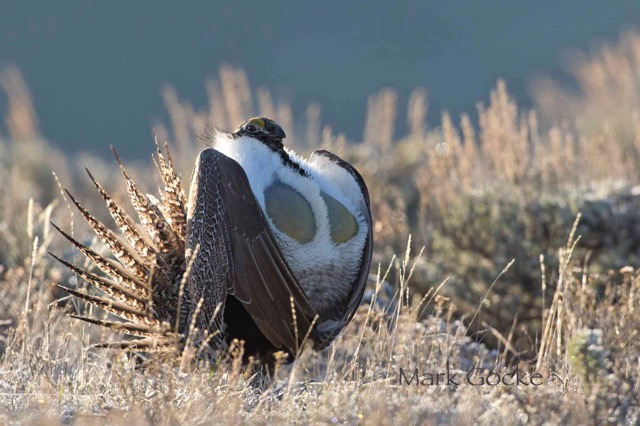
US Congress
April 26, 2016, Washington, D.C. – Rider to the National Defense Authorization Act Could Be a Big Issue for Sage Grouse
More than 37% of the nation’s Greater Sage-grouse population is in Wyoming.
The language on sage grouse inserted by Rep. Rob Bishop of Utah is identical to his bill HR 4739, introduced in March, and would:
- Forbid the Interior Secretary from “making a finding” changing the Fish and Wildlife Service decision last fall not to list the sage grouse for protection under the Endangered Species Act.
- Allow states to block the federal conservation plans, or amendments to land-use plans in 10 states, as well as the proposal to restrict new mining claims in Idaho, Montana, Nevada, Oregon, Utah and Wyoming.
Proponents of the rider say it’s needed to avoid hindering military operations and training at sites occupied sage grouse. Similar language was added to last year’s House version of the bill but was stripped out in the Senate. However, existing law allows the US Defense Department to receive an exemption from ESA requirements for security reasons.
Bad Rider:
- Defense officials say they don’t anticipate any significant adverse impacts from the federal land-use plans.
- The states’ ability to block the federal plans would upend the unprecedented, comprehensive conservation effort that was developed over several years with input from diverse stakeholders and the states, and laid the foundation for the decision that sage grouse don’t need to be placed on the Endangered Species List.
- The provision undermines the collaboration among federal, state and local agencies as well as private landowners and conservation organizations. A course has been charted in efforts to conserve sage grouse and the sagebrush steppe and this kind of roadblock would reverse the good work already done and raises the possibility of eventually having to list the bird.
- Years of delay would also threaten the sagebrush ecosystem, which is under stress from invasive species, wildfires, drought and development. The habitat is important to maintaining more than 350 different species as well as ranching and outdoor recreation that generates more than $1 billion annually.
- The provision’s requirements would be exempt from judicial review.
